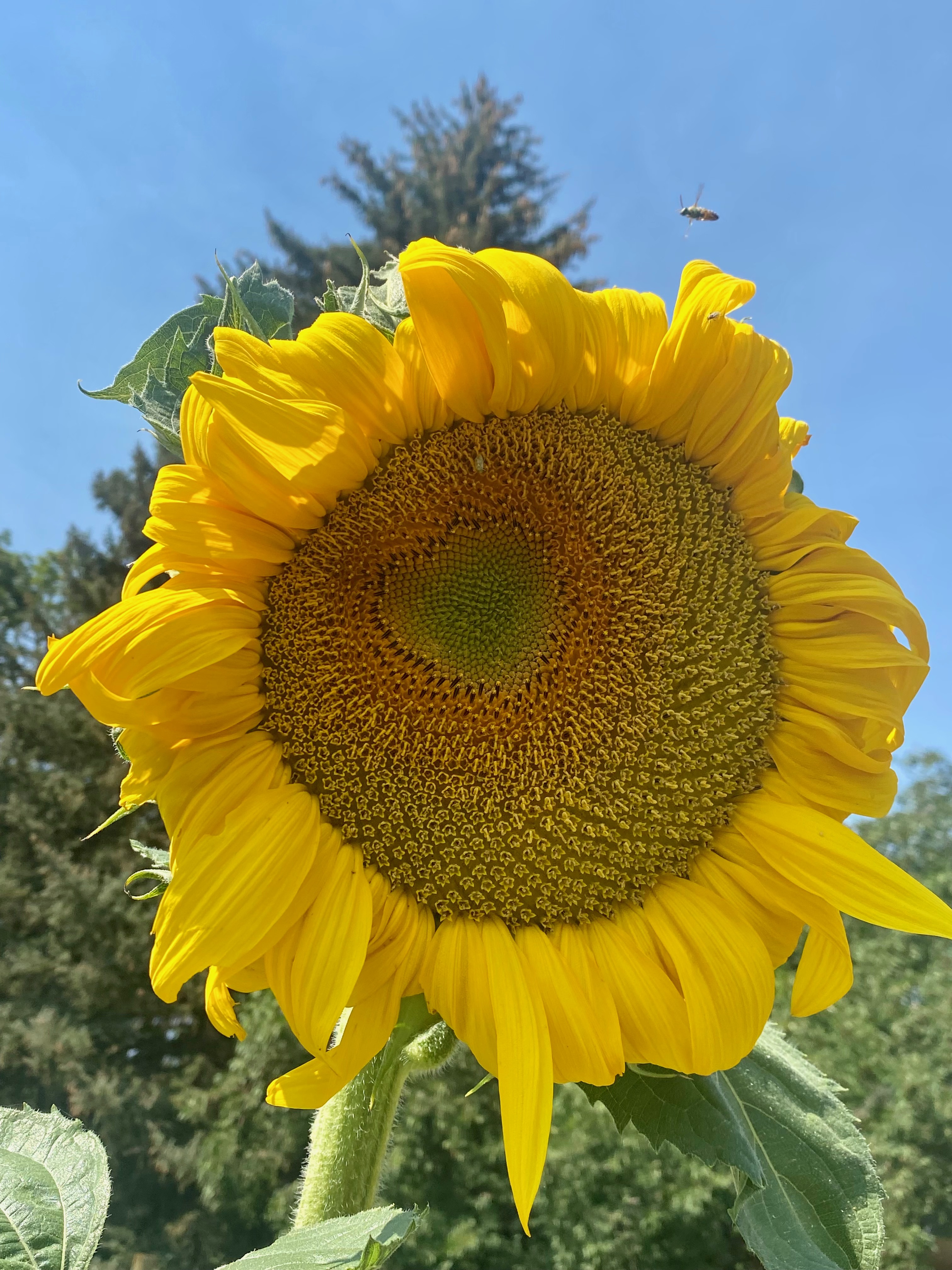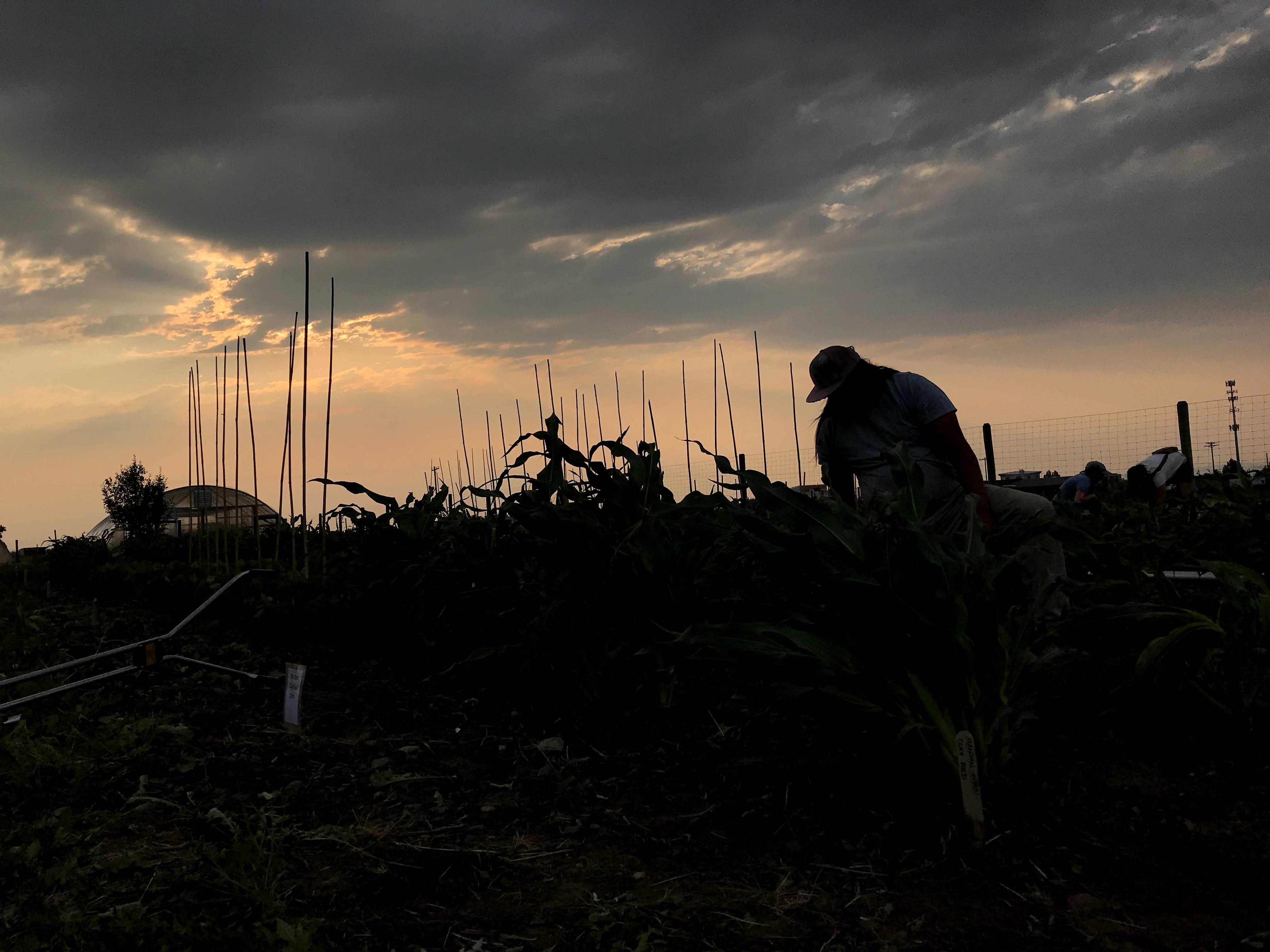Indigenous Ways of Knowing


Buffalo Nations credentials Indigenous food systems professionals and enhances research
using Indigenous knowledge systems as a primary source of understanding and Western
Science as a companion way of knowing. Together, both Native and Western Science drive
our collective work and shared understandings moving forward.
Seven generations thinking guides the work of the BNFSI with a shared set of core values including Respect, Relationships, Reasoning, Reciprocity, Resourcefulness, Resiliency, and Reverence.
The first of the seven grandfather teachings, held in common by many Buffalo Nations, is respect. The teaching of respect is symbolized by the Buffalo.For us, as for the buffalo, to respect is to give. The Buffalo who has stood for us for millennia teaches Respect. By giving his life, the Buffalo shares every part of its being--shows respect. In this way the Buffalo practices conservation seeking to perpetuate all life. We also respect the interrelationships between us and the four-leggeds, the winged ones, those that swim, and the relatives that live above and below the ground. We commit to healing the kinship web through working with our relatives with respect, avoiding judgement, and supporting diversity in Native and mainstream cultures.
We are committed to restoring a large relational network around our Indigenous food systems that aligns with our Indigenous relationships of old which favored diplomacy and alliances, as well as cooperative, respectful, and reciprocal encouragement of the well-being of all our relatives.
To this end, we envision nurturing strong bonds between this program and Tribal and First Nations Colleges—relationships which will build a foundation of support for Indigenous students who are moving from one institution to another and encourage Native-led food system research within our communities contributing to cultural knowledge recovery and the priorities of Native Nations.
Further, we commit ourselves to ‘leading with love’ in an effort to heal divisions that have come between Native Nations through the course of colonial disruption. We reject lateral violence amongst and within our communities. We stand for good relations with all peoples and the Earth who sustains us.
Our reasoning leads us to our understanding of the world we live in and flows from it. Reasoning includes how we come to know and what we know. We call our way of reasoning Indigenous knowledge. Knowledge is a methodology. A methodology is a validation process. It speaks to how we validate sensory intake so that a person can claim, “I know.” Knowing is represented in the Indigenous context as multiple and diverse processes and includes other ways of knowing, i.e., dreams, visions, insights and teachings that validate one’s sensory intake. In its essence, Indigenous knowledge flows from a relationship between people and place, and in an understanding that is represented by the statement, “We are the Land,” where Land represents all of the web of life inclusive of elements and beings including water, wind, soil, fire, sky, animals, plants, water, and people. In the Indigenous world, knowledge is about these relationships, therefore our education and research are land-based, or always in relationship with the breadth of elements in the web of life and committed to their well-being.
Our ancestors and teachers have long reminded us that, “We are the land.” Recognizing our responsibility for the health of the land and the people, we re-Indigenize ourselves, our land and water use, and education. As we see all animals, plants, and elements as our relatives, we acknowledge these relatives as life sources and reject the dominant narrative of ‘natural resources’. To this end, we are committed to Indigenizing our credentialing of Indigenous food system professionals preparing Native students to continue our way of life in which food is the end product of our land practices and ways of being. We are committed to encouraging Indigenous youth from a very young age to consider where their gifts align with this work and the fields of Earth Sciences and Food Systems carrying forward care for Mother Earth and the production of food in modern Indigenous food systems in the 21st century and beyond.
We are committed to cultural resurgence and mutual well-being. Though our communities have faced great hardship within the context of colonization, we stand in our own cultural values and lend our strength to one another and mainstream culture. This translates to a philosophy of investing in our ways of knowing, our own lands and peoples first, without leaving anyone behind. While we place an emphasis on the importance of Indigenous knowledge leading this Initiative, we look to integrate Western ways of knowing as well. As we work to recover and re-integrate Indigenous foodways and agricultural knowledge including relationship with buffalo, we encourage engagement of Indigenous cultural values with others’ agricultural methods.
With respect for the ancestors who carried our knowledges forward, the land, and buffalo, we hold integrity for Indigenous culture and work to protect the pathway of the new life that is coming. We stand strong so that our students and their students may stand strong in their Indigenous identities.
As we conduct education and research in support of vital Indigenous food systems, we acknowledge that the seeds of well-being are found in each one’s culture. With recognition of the strength in diversity, we work collectively to build mutual capacity for caring for our own and the web of relationship. Centering food system education and research in the values of our communities, we are focused on the ones who are coming who will carry Indigenous knowledge and well-being into the future.
"Eurocentric intelligence is restricted to rational, linear, competitive, and hierarchical thinking. Indigenous intelligence encompasses the body, mind, heart, and experience in total responsiveness and total relationship to the whole environment, which includes the seven generations past and future. Implementation of major changes to indigenous communities requires being well educated in the Indigenous way of being."
- Jim Dumont Onaubinisay (Walks Above the Ground), Ojibwa-Anishinaabe
